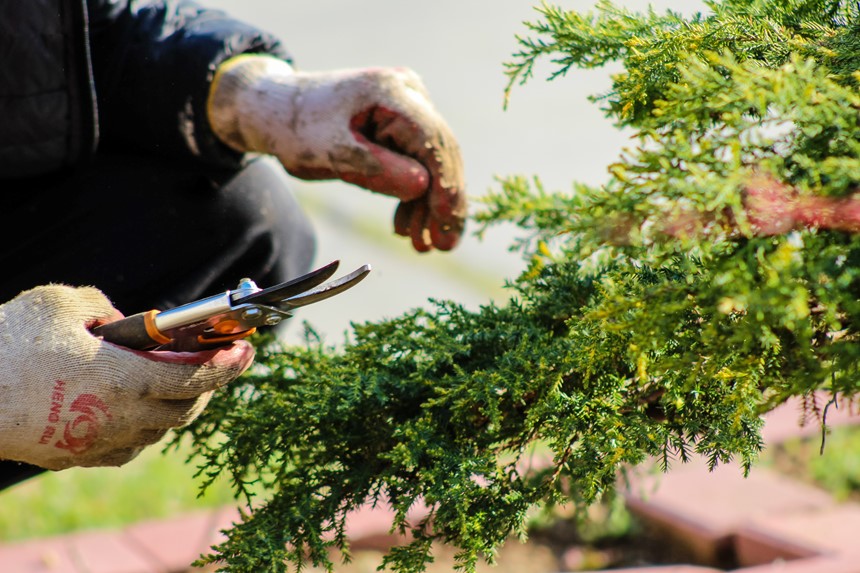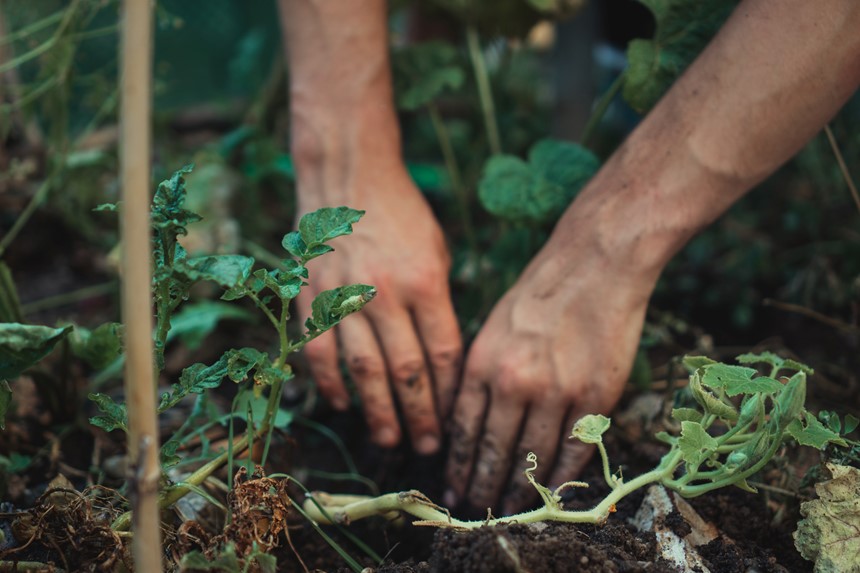Richard Reynolds is arguably the UK's highest profile guerrilla gardener, and author of On Guerrilla Gardening. We spoke with him about the state and adventure of guerrilla gardening today.

Richard Reynolds is arguably the UK's highest profile guerrilla gardener, and author of On Guerrilla Gardening. We spoke with him about the state and adventure of guerrilla gardening today.
Richard, when and why did you first become a guerrilla gardener?
October 2004 was when I first started digging up some public space without permission. It was the bed outside the tower block where I lived at the time. I'd been there since spring and it was a mess all through the summer. It was such a waste, an embarrassment - I knew I could easily make it better. But the council were distant and had just closed down the old residents association for irregular financing, so it seemed best to avoid all the local politics and permissions and just press on.
What defines guerrilla gardening?
The illicit cultivation of someone else's land. Gardening without permission. Typically public space that's obviously neglected.
What does a typical dig look like?
Mostly individuals just pottering around, tending a garden, much like a private gardener in their private space. I have at times organised bigger mass gatherings to more rapidly transform a place, as do other groups of guerrillas around the world. This can be great fun, but it is higher risk. The rewards are great for having such a big transformation quickly, and it's quite a spectacle for passers by to engage with.
'October 2004 was when I first started digging up some public space without permission. It was the bed outside the tower block where I lived at the time.'
Do you see guerrilla gardening as an adventure? Have you had any particularly adventurous moments?
Yes, particularly when it's a new location. However much you might be familiar with the area (or not), you don't know what might happen - primarily encounters with passers by. I've ‘met’ the police, but always navigated those encounters with chit chat or backing down, whether searched under the prevention of Terrorism Act or threatened with arrest. No criminal record so far.
On holiday in Libya in 2006 I did some gardening in Tripoli, which caught the interest of a local bystander who invited me into a social club for a chat about my intentions, which he was content was simply a gesture of beautification. It felt like an optimistic time back then for the country. Blair had recently been accommodating Gaddafi and I was travelling there with a gay rights activisit and BBC producer (although both were undercover).
Photo: Crystal Jo, Unsplash

Are there any reasonable arguments against guerrilla gardening?
Ignorant or irresponsible actions are the fear. Planting something unsuitable for the location (will grow too large and obstruct something, become invasive) or causing damage when digging. But I've never encountered these problems, and in my experience of meeting many guerrilla gardeners around the world, anyone bold enough to be a guerrilla gardener seems to be considerate enough and sufficiently risk averse to avoid these issues. Though I was told by a New York guerrilla gardener that he was digging down and came across some bricks, lifted one up to find a shaft of light coming up from the subway. That's a bit terrifying!
There are of course some guerrilla gardeners whose intentions are not to create a permanent garden, but use gardening and plants as symbols of protest for a cause that could be varied: politics, environmental causes etc. In these circumstances the arguments against it are the same arguments used against direct action. Unfortunately sometimes the intentions of guerrilla gardeners like myself who do it to improve the landscape can be muddled with direct action, where the intention is not for the plants to survive.
You say guerrilla gardening is a war against neglect and scarcity of public spaces. Who is to blame here? And is the situation improving or worsening?
The opportunity to guerrilla garden tends to increase in line with lack of interest in space from private and public bodies. So the biggest opportunities are in the most neglected areas, abandoned by commerce and authority. Hence the rise of guerrilla gardening in downtown New York in the 1970s or Berlin in the 1990s or Elephant and Castle in the early 00s. All places with capital flight and struggling local authorities. All three areas eventually changed as money moved in and political ambition grew. And in all three areas guerrilla gardens were lost or had to evolve into more legitimate spaces.
That is the general pattern, but there are plenty of exceptions. Keen gardeners are also needed and these can be found anywhere, and even in a fairly lovely rural town where I live now, there is neglected public space (cash-strapped, disinterested Tory run local councils) and the opportunity to improve.
Photo: Jonathan Kemper, Unsplash

'The opportunity to guerrilla garden tends to increase in line with lack of interest in space from private and public bodies. So the biggest opportunities are in the most neglected areas, abandoned by commerce and authority.'
Has guerrilla gardening become more or less accepted by the authorities in recent years? In other words, how have the battle lines shifted?
I've worked hard to present it as positive, harmless fun that can be tolerated. I hope many have benefitted from this around the UK and beyond. I have seen local authorities become more tolerant and even encouraging of it, to such a point that we need not always be guerrillas now to do the same thing.
What about the movement? How does this look different now versus a decade ago?
I'm somewhat detached from it, as I've very much pulled back from social media (virtually no Facebook now, just a little tweeting out), so I'm not in touch so much. My focus is the gardening and the rest of my life. My impression is that the idea is strongly embedded out there now, and people can easily find out more from the web and get inspiration from what they find that can be suitable to them. I recently heard from a journalist in Minneapolis who is reporting on guerrilla gardens being built as public memorials to the recent murders, including George Floyd. These become both beautiful and social spaces.
For anybody new to the idea, what first steps would you recommend?
Just go out solo, somewhere super local to you, somewhere you can enjoy and look after. Perhaps a clump of daffodils in the autumn which you can look forward to for spring next year. Read more in my 2008 book, On Guerrilla Gardening, too - available cheap as chips. A second-hand hardback copy is the nicest edition.

